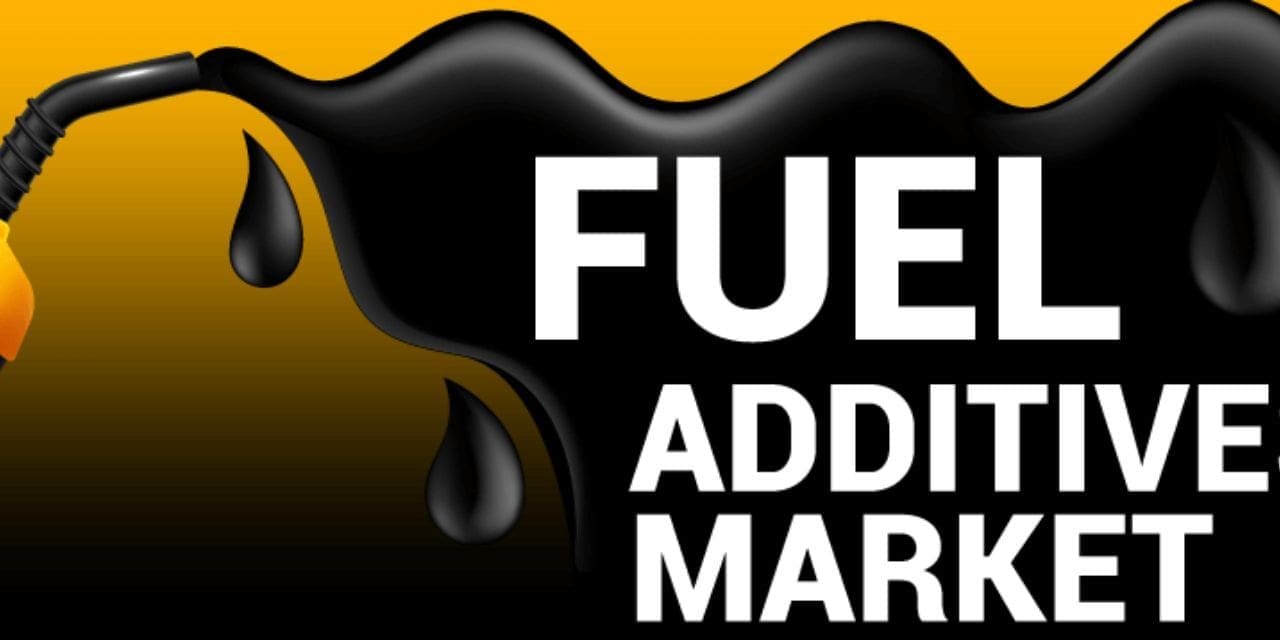The report “Fuel Additives Market by Type (Deposit Control, Cetane Improvers, Lubricity Improvers, Cold Flow Improvers, Stability Improvers, Octane Improvers, Corrosion Inhibitors), Application (Diesel, Gasoline, Aviation Fuel) – Global Forecast to 2026″, The fuel additives market is projected to reach USD 7.1 billion by 2026, at a CAGR of 3.4% from USD 6.0 billion in 2021. Fuel additives are chemicals that are used to improve the efficiency of fuel. These additives help fuels in meeting emission control standards and improve engine or vehicle performance. Apart from these functions, fuel additives also help in the reduction of corrosion and enhance combustion in various applications in commercial, automotive, industrial, and aerospace sectors. These can be categorized into ten types- deposit control additives, cetane improvers, lubricity improvers, cold flow improvers, stability improvers, octane improvers, corrosion inhibitors, anti-icing fuel additives, dyes & markers, and others. Deposit control additives had a larger share in terms of value in 2020 as compared to cetane improvers and others.
Browse
• 361 Market data Tables
• 66 Figures
• 303 Pages and in-depth TOC on “Fuel Additives Market – Global Forecast to 2026″
Some of the prominent key players are:
· Afton Chemical Corporation (US)
· The Lubrizol Corporation (US)
· Innospec Inc. (US)
· BASF SE (Germany)
· Evonik Industries AG (Germany)
· LANXESS AG
· Chevron Oronite Company LLC (US)
· Dorf Ketal Chemicals (US)
· Infineum International Limited (UK)
· Cummins Inc (US)
· Total SA (France)
· Baker Hughes (US)
· Clariant AG(Switzerland)
· Croda International PLC (UK)
Recent Development in Fuel Additives Market Industry
· In February 2021, LANXESS AG has signed a contract to acquire Emerald Kalama Chemical which is in the US. Based company. It is a leading manufacturer of specialty additives.
· In February 2021, The Lubrizol Corporation announced the launch of new additive which is a part of Lubrizol PV 1500 series which is engineered to provide operational efficiency. Dexos will be available for first licensing by September 1, 2021.
· In April 2021, Innospec Inc. launched a new product named Trident for bunker fuel additive packages to improve fuel stability and combustion efficiency. The types of stability additives under the brand name Trident are Trident 100,120,200,290.
Driver: Stringent governmental regulations
Governments all over the world are imposing stringent environmental regulations to address growing concerns about the harmful effects of greenhouse gas (GHG) emissions. Government agencies are focusing on the use of clean and efficient fuels The Environmental Protection Agency (EPA) in the US has regularly modified and enforced several norms for reducing vehicular emissions and improving the quality and efficiency of fuels used. The European Union (EU) has imposed stringent rules that are to be followed by every refiner and marketer of fuels. The directive on the Promotion of Clean and Energy Efficient Road Transport Vehicles (EU) strives to introduce environmentally friendly vehicles and fuels. It is also concerned with the purchase of vehicles for public transport services. The UK government introduced a set of regulations in 2011, which look after the use of additives in fuel. Section 211 of the Clean Air Act of the US EPA states that refiners and importers must register their products with the EPA before they are offered for sale.
Restraints: Growth in demand of hybrid vehicles and increasing battery price parity
Hybrid vehicles contain both a small Internal Combustion Engine (ICE) and an electric motor for optimum power utilization and reducing emissions from vehicles. The growing number of hybrid vehicles will reduce the demand for fuel. This factor, coupled with the increasing battery parity, will impact the volume of the global fuel additives market.
Batteries for electric vehicles are very costly; however, with improved technology, their cost is reducing, and the driving range per charge is increasing. These factors have a huge impact on fuel consumption, especially with decreasing battery costs. The demand for electric vehicles is expected to increase, thereby decreasing the overall fuel consumption. Thus, it will decrease the demand for fuel additives in fuel.
North America is estimated to be the largest region in fuel additives market in 2020.
The North American fuel additives market is the largest fuel additives market in the world by value. Globally, it has been leading the market with regards to demand as well as product innovation in terms of quality and application development. Due to stringent environmental regulations, the fuel additives industry is experiencing significant growth. The North American market is highly regulated with the Environment Protection Agency (EPA) playing a key role in the monitoring and commercialization of fuel additives products.

